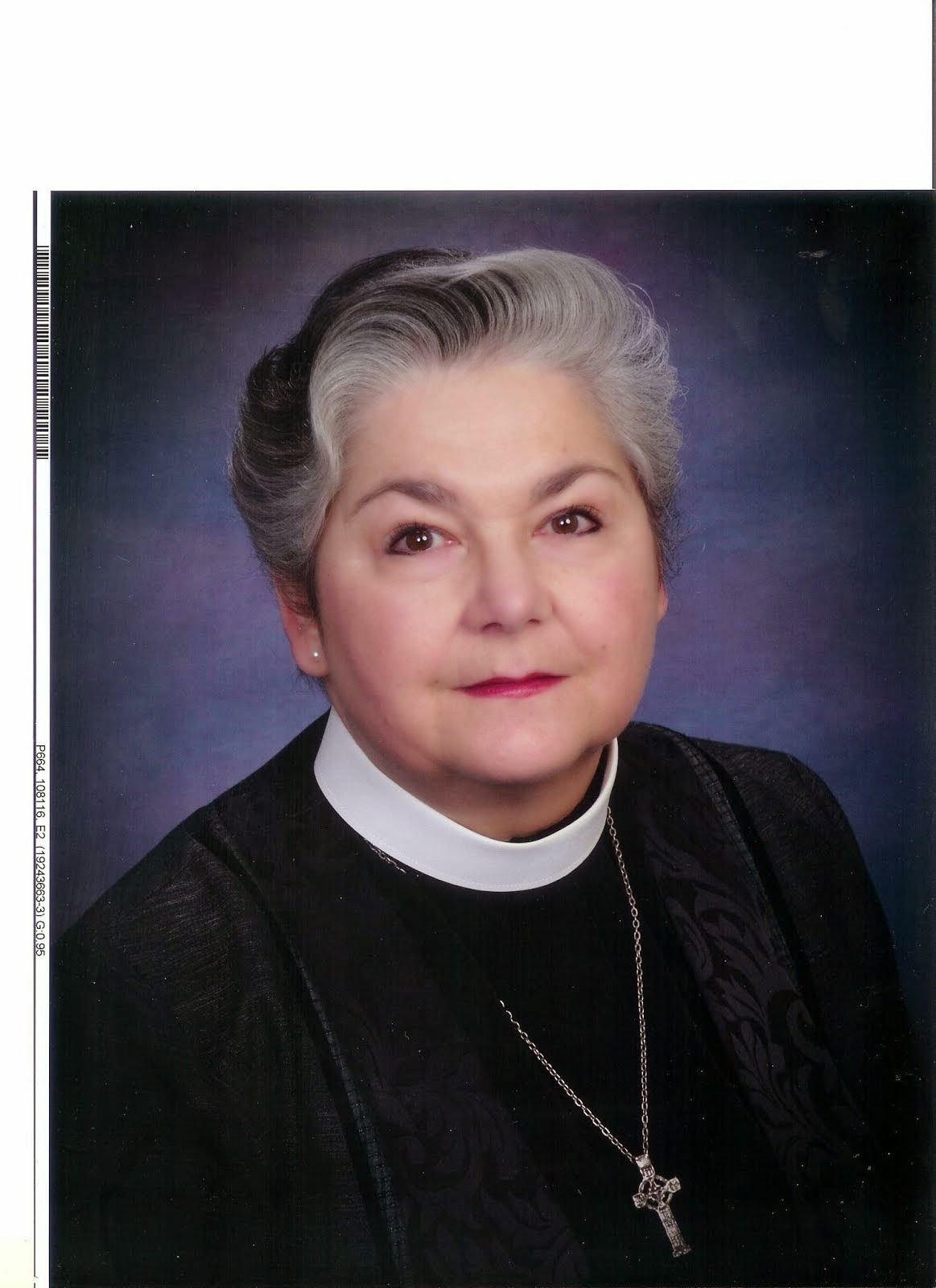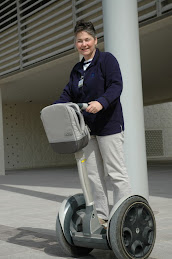When we are required to do something that is new and strange and difficult, we balk.
“I can’t do that. I don’t know how.”
Even at work, even when it’s a task that is part of the job description, we struggle and resist, until someone either forces us to do this new thing or patiently explains how to do it. We need help when we try something new.
Think about riding a bike. When you were little, you may have wanted to learn how to ride a bike because you saw an older brother doing it, or other children in the neighborhood, or even favorite characters in cartoons. So mom and dad got you a bike, and now it was time to learn how to ride it. I suspect most of us started our bike-riding with little tricycles. Easy to learn on, because the three wheels didn’t require any balancing. The trike did most of the work for us. All we had to do was pedal. Then we graduated to a larger bike, and that bike usually had training wheels.
The training wheels were designed to help us start to understand the balance required to keep the bike upright on two wheels. Just two small extra wheels, attached by some strips of aluminum to the back wheel, just a bit more help to maintain one’s balance…the guidance that would give us the confidence to try and balance the bike on two wheels ourselves. Later on, we might learn that balance with the training wheels off by our dads holding the back of the seat and running along side of us until we got a good start, then letting us ride by ourselves, as we realized that we could do it on our own, even though it had seemed impossible a few weeks before. Of course, if we forgot how to use our brakes, we might wind up in the bushes or down in a ditch, but we knew that we had begun to understand this bike-riding thing. And in that knowledge we found the courage to try and do it ourselves.
It happens in other aspects of our lives as well. Just about every new mother I have known - and I count myself among them – has had a moment of panic upon bringing the baby home. “How do I do this? How will I manage? Will I hurt the baby by doing something stupid?” Many of us have been fortunate to have our mothers or mothers-in-law available to help, to ask questions of, to show us the way she had done things. Of course, we knew that we were done with the apprenticeship when we started to get annoyed at suggestions, started to wonder when mom was going home. We were no longer in need of those training wheels to help us keep our balance, we were ready to ride by ourselves.
I found myself thinking of that stage of “almost ready but not quite sure enough to be on my own” in listening to the gospel story today. On the face of it, it’s a story about a miracle, about God’s great abundance, about Jesus’ care for those in need…but I’d suggest there’s something else going on here, a story about doing the work, but feeling unready, needing help to try something new.
Let’s step back a minute and think about where we are in the Gospel of Matthew.
Way back in chapter 10, Jesus called the twelve disciples to follow him and work with him. Since then, he’s been going around Galilee, teaching and preaching, healing and helping, and what started out so simply and beautifully has started to cause some problems with the authorities. He’s recently visited his own hometown and been rejected. And now, he has heard that the evil Herod Antipas has killed his cousin John the Baptist as the climax to a sumptuous banquet, at the request of his stepdaughter.
I can picture Jesus, grieving his cousin’s murder, feeling alone, wondering how this was all going to play out. He wanted to be by himself, to think and to pray. It’s what we all long for, when we’re hurting. But even as he climbed into that little boat to feel the gentle waters under the keel, to feel the rock of the waves, to hear the cries of the birds overhead, there was a crowd of people who wanted to hear what he had to say, following him out from the city.
He saw them, and he saw that there were some among them that were in need of healing, so he went back to the shore and got out, and began to heal the sick. His heart was sore, but his desire to help those in need of his healing power was greater.
So this huge crowd of people, five thousand men and perhaps triple that number of women and children, have followed Jesus, looking for his words, his healing power, and now they’re out in a deserted place, a wilderness. No 7-11 or Wendy’s down the street. And it’s getting on towards dinner time – these city folks ate the main meal in the evening, unlike the country folk who had the big meal at lunchtime – and the disciples knew all these people would be thinking about food. So they went to Jesus and said “send them back into the towns so they can get some food.” And Jesus turned around and said to the disciples just the thing they least wanted to hear : “YOU give them something to eat”. And in the Greek, it’s the emphatic form. YOU give them something to eat!
Think about it from the disciples’ point of view. All the way from the gathering of the disciples and their commissioning to follow Jesus in chapter ten, these guys have been following Jesus around. All through miracles, parables, q&a sessions. He gave them their instructions in chapter ten. But here we are in chapter 14, and they haven’t done much of anything, just followed the Lord around and asked some questions when they didn’t understand what he was saying.
Perhaps Jesus was a little tired of them at that moment. Perhaps he thought it was time for them to do something. Perhaps they needed a little kick to get moving. Perhaps they needed a little help to try something new.
So he said “YOU give them something to eat.” Notice he didn’t make them do the whole thing themselves. When they said, “All we’ve got are these pitiful few loaves and fishes,” (can’t you hear the whining in their voices as they say it?) he probably sighed, then said, “Bring them to me.” So he blessed the bread and the fish and gave it to the disciples to distribute.
Here’s the interesting question here: where does the miracle occur? He gives those few loaves and fishes to the disciples to distribute. It is only in their hands that the loaves and the fishes keep coming, keep coming, keep coming, until everyone has had enough to eat. How do we know they’ve had enough? Because there are leftovers. Twelve baskets full, which sounds like a lot until we realize that there were something like twenty thousand people sitting there. Twelve baskets of crumbs doesn’t sound like so much anymore. The Lord has provided enough to satisfy, not much more. And the Lord has used what was available, what the disciples had to offer, to care for the hunger of all those people.
But this question of when the miracle actually occurs is a pertinent one, one that deserves a closer look. On the face of it, we might say it’s the Lord’s blessing that does the deed. But it is when the bread and fish are in the disciples’ hands, that’s when the deed is made manifest. It is the disciples carrying out that order “YOU feed them.”
Perhaps the Lord could have had instructed them to say a blessing over the bread and fish. Certainly later in the disciples’ ministries, they would do exactly this to carry out the work that Jesus commissioned them to do, way back in Chapter Ten. But here, in this deserted place, they simply receive the blessed bread and fish, the peasant meal, no sumptuous banquet, from the hands of Jesus, and distribute them.
Perhaps the real miracle of this moment is not the transformation of the bread and fish into enough to feed the multitudes. Perhaps it is the transformation of the disciples, from those who merely follow after the Lord and ask a few questions, to those who do the work He has asked of them. This moment is a re-commissioning, a call again from Christ to do the work. The move from Chapter Ten to Chapter Fourteen is not just the passage of time, it is the embracing of a fuller understanding of what it means to be his disciple.
But remember Jesus doesn’t simply send them out on their own to do that work. He helps them. He tells them what to do. He models caring in his own actions of healing and bidding the multitudes to sit and be fed. He responds to their doubts by taking the bread and fish and blessing them. It’s a commissioning with the training wheels on. They’re not doing this thing alone; Jesus is guiding them step by step through their active participation in this miraculous act. His words may have generated the miracle, but their participation makes it real.
We sit together and we wonder what Christ has in store for us. Not a one of us hasn’t said at some time, “Lord, I can’t be of use to you. All I have are these meager things, and I don’t know how to do what you ask.” We feel the tug of Christ calling us to do something, and it is inconceivable that he would use us. We may not be facing tens of thousands of hungry people, maybe just some folks at the soup kitchen, or children in a Sunday School class, or parishioners waiting to hear our sermon. The feeling is still the same. We are unequal to the task. We know that as Christians we should be doing something more than just following along and asking a few questions, we should be doing the work of the Body of Christ in the world. But where to begin?
That beginning is Christ. He calls us. We bring him the small gifts we have to offer. He blesses them and hands them back to us, and says, “Use them. I’m right here helping you. The training wheels will stay on as long as you need them. You are not alone.”
The miracle occurs for us, somewhere between Chapter Ten and Chapter Fourteen. We don’t need to know precisely when…we only need to know that moment will occur. It may be with training wheels at first, but it will occur, and we will take our first tentative ride into true discipleship knowing he is right with us all the way.
Amen.
Subscribe to:
Post Comments (Atom)







No comments:
Post a Comment